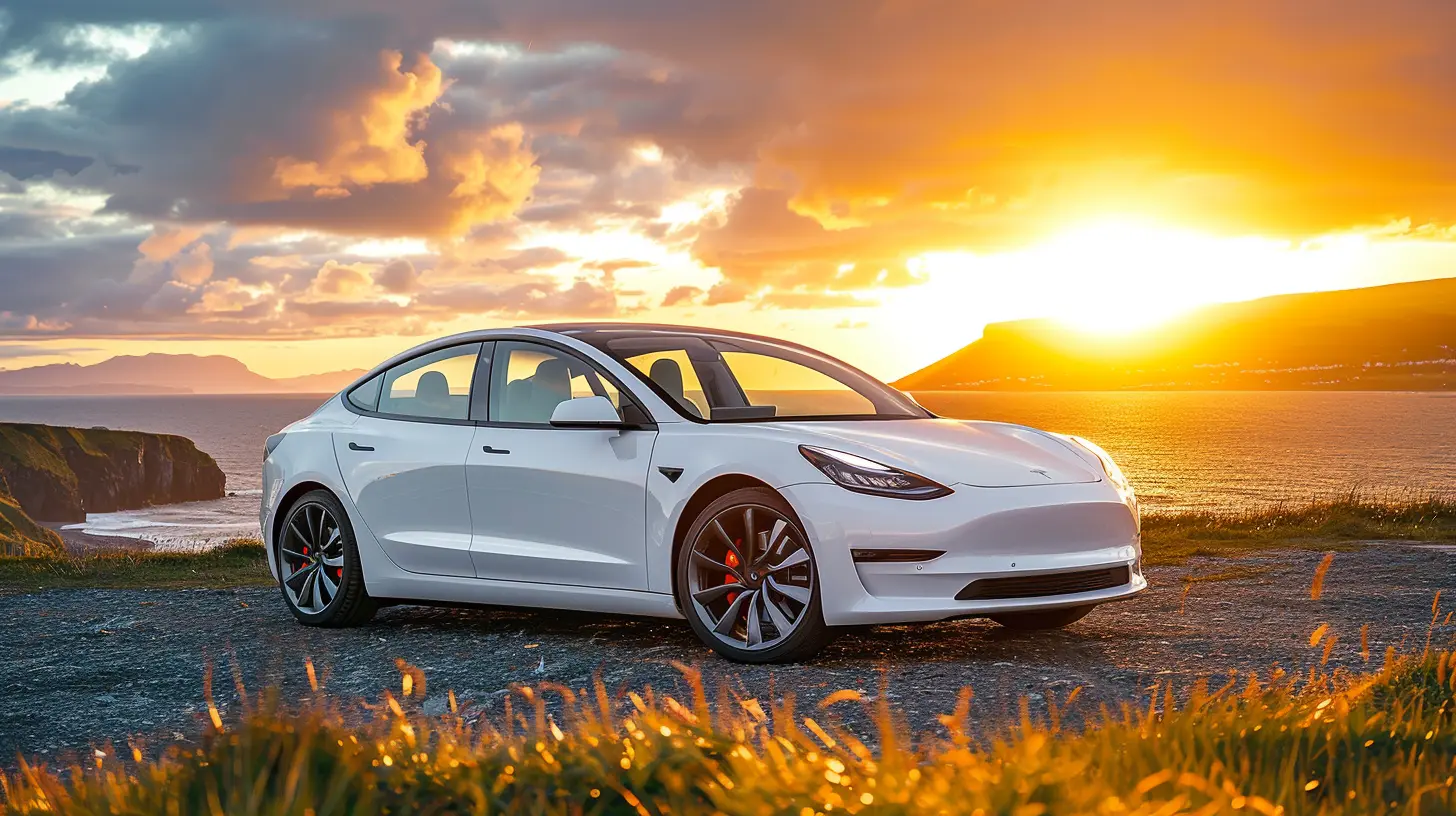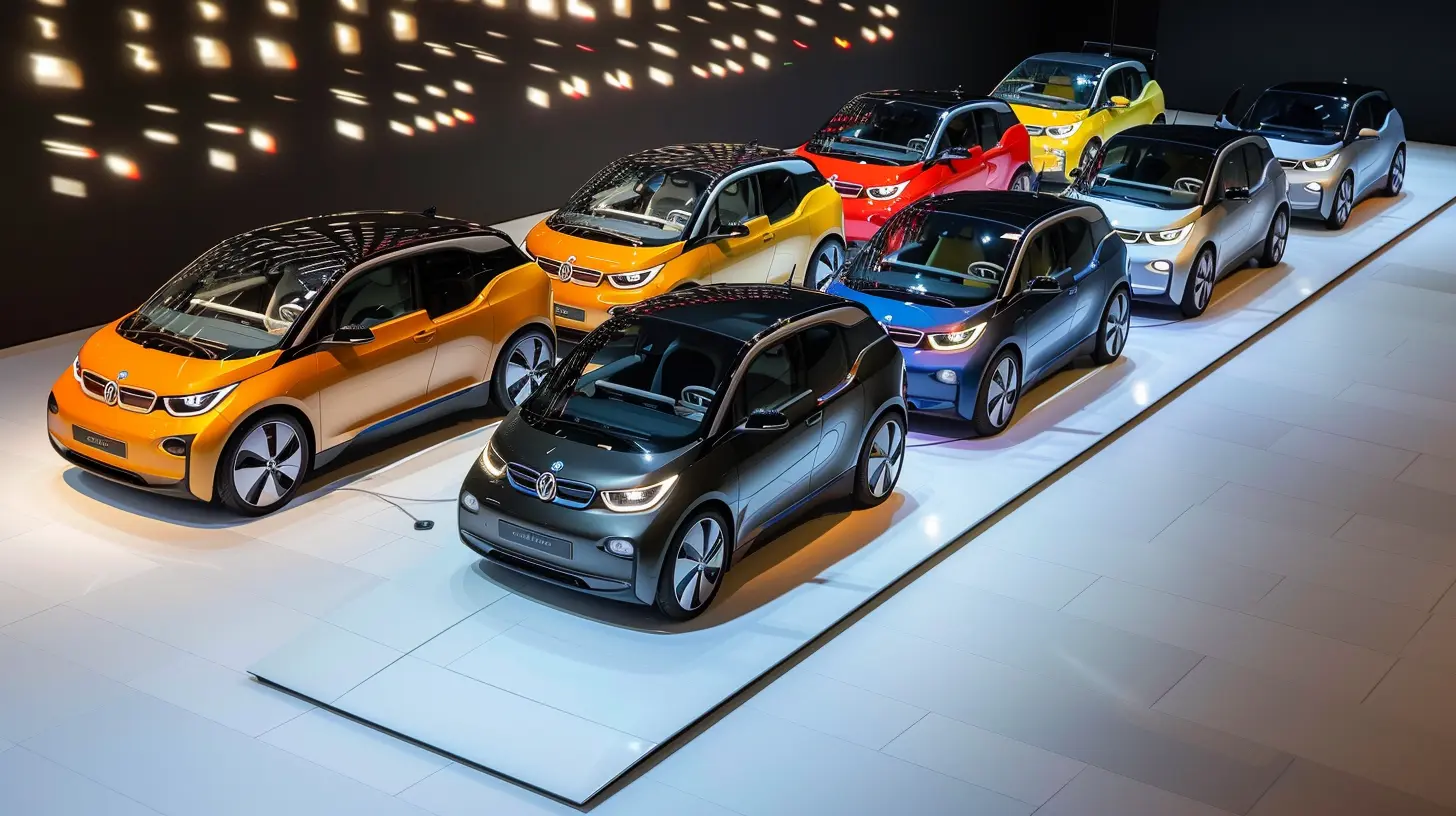Electric Vehicles in the Used Car Market: What to Look Out For
25 June 2025
So, you're thinking about buying a used electric vehicle (EV)? That's awesome! EVs are becoming more popular by the day, and for good reason—they’re clean, quiet, and super efficient. But jumping into the used EV market? That’s a whole different beast. Unlike traditional gas-powered cars, electric vehicles have their own unique quirks and things you need to be aware of.
In this guide, we're going to break it all down in a simple, conversational way. Whether you're a first-time EV buyer or just trying to avoid a lemon, we'll cover everything you need to look out for before signing the dotted line.
The Big EV Buzz: Why Are More People Buying Used?
Let’s face it, buying new can be expensive. New EVs like the Tesla Model 3 or Ford Mustang Mach-E often come with a hefty price tag. But guess what? The moment that car is driven off the lot, its value drops—just like any other vehicle. That’s why the used EV market has become a great way to get your hands on a high-tech vehicle without breaking the bank.Also, with more EVs hitting the roads each year, there's a growing used inventory floating into the market. More choices, better prices, and let’s not forget—many used EVs are still in fantastic condition.
What Makes Buying a Used EV Different?
Buying an electric car isn’t the same as buying a traditional gas guzzler. EVs come with batteries, software, charging systems, and other unique tech that needs some extra attention. Just because a car looks good on the outside doesn’t mean it’s ready to roll.Let’s go over the biggest things you should keep an eye on.
1. Battery Health is the Deal Maker (or Breaker)
This one's HUGE. The battery is the heart and soul of an electric vehicle. It's also the most expensive part to replace. Think of it like the engine in a gas-powered car—if it’s not working right, you’re in trouble.❓How Do You Check Battery Health?
That’s the tricky part. Unlike checking the oil, battery degradation isn't always obvious. EV batteries lose capacity over time, which means the car won't go as far on a full charge as it did when it was new.Here’s what you can do:
- Ask for the battery report: Some EVs have built-in diagnostics that give you battery health info.
- Use third-party apps: Apps like LeafSpy (for Nissan Leafs) can show you detailed battery stats.
- Get it inspected: A trusted EV mechanic or dealership can run a battery analysis.
Pro Tip: Most batteries degrade about 2-3% per year, but this varies based on how the car was driven, charged, and maintained.
2. Charging History: Did the Previous Owner Treat It Right?
An EV’s battery lifespan can be greatly affected by how it was charged. If the car was frequently fast-charged (like at a DC fast-charger), that could accelerate battery wear over time.🔌 Questions to Ask:
- Was the car mostly charged at home or via public fast chargers?- Did the owner charge to 100% regularly? (That's a no-no unless you're doing long trips.)
- Did they often let the battery drain to zero? (Yikes—it’s bad for lithium-ion batteries.)
A seller who took care of their EV’s battery will proudly tell you all this. If they’re vague or unsure, that’s a red flag.
3. Software and Updates: Is It Running the Latest Version?
Most EVs are basically computers on wheels. And just like your smartphone, they need software updates to fix bugs, improve performance, and sometimes even add new features.🧠 Why Does This Matter?
Because an outdated EV might miss out on better battery management, security patches, or even charging improvements. Some vehicles (like Teslas) can get over-the-air updates, while others need to be taken to a dealership.Before you buy, check:
- Is the car up to date?
- Is the infotainment system running smoothly?
- Are there any known bugs in the current model?
4. Charging Compatibility: Will It Work With What You Have?
This one often slips under the radar. Not all EVs use the same charging plug. In the U.S., most use the J1772 standard for Level 2 charging, but fast-charging connectors can differ. Tesla? They have their own plug. Other brands? They might use CCS or CHAdeMO.⚡ What’s the Charging Setup?
Ask the seller:- What charging cable comes with the car?
- Is it compatible with your home charger or nearby stations?
- Does it support fast charging?
It would be a bummer to get a great deal only to realize you can’t charge conveniently.
5. Warranty Coverage on the Battery and Drivetrain
Most EV batteries are covered by an 8-year or 100,000-mile warranty (whichever comes first). That’s longer than most traditional powertrain warranties! But you need to check where the used car stands.🔒 What’s Still Under Warranty?
Ask these:- When was the car originally purchased?
- How many miles are on it?
- Is the warranty transferable to you as the second owner?
Some brands offer warranty extensions depending on the model and battery type.
6. Range: What You See Isn’t Always What You Get
We’ve said it before—batteries degrade. That shiny 2017 EV that promised a 230-mile range? It might be rocking closer to 190 now. And that can vary based on driving style, temperature, and terrain.🚗 How Much Range Do You Really Need?
Be honest with yourself here. If you’re running errands or commuting locally, even a 100-mile range might be plenty. But if road trips are your jam, you want a battery that can go the distance—literally.Pro Tip: Always test-drive the EV during your normal driving hours. That way, you’ll know how it performs in real conditions.
7. Charging Infrastructure in Your Area
Even the best EV won’t help if you struggle to charge it. Before you buy, take a peek at the charging landscape near you.- Are there enough public chargers nearby?
- Can you install a Level 2 charger at home?
- What’s the charging cost in your area?
Apps like PlugShare and ChargePoint can give you a good idea.
8. Vehicle History Report: Same Rules Still Apply
This part doesn’t change, regardless of whether you’re buying an EV or a gas car. You still want to know if the car has been in any accidents, had major repairs, or has a clean title.Use services like Carfax or AutoCheck. But go beyond that—inspect the car or have a mechanic do it for you. EVs might hide issues deeper in the tech systems that basic reports miss.
9. Heat Pumps and Cold Weather Performance
Live somewhere chilly? Then cold weather performance absolutely matters. Some EV models lose a big chunk of their range in winter temps, especially if they don’t have a heat pump.❄️ Why It Matters:
EVs use energy to heat the cabin, and if there's no heat pump, more battery juice gets used—you’ll get fewer miles between charges.Before buying, find out:
- Does this model have a heat pump?
- How does it handle in winter conditions?
10. Bonus: Consider Certified Pre-Owned (CPO) EVs
Want peace of mind without the "new car" price tag? Certified Pre-Owned EVs might be your best bet. These vehicles go through inspections by the manufacturer (or dealer) and usually come with extended warranties.Yes, they cost a bit more than typical used EVs, but the quality assurance is often worth it—especially in the tech-heavy world of electric vehicles.
Final Thoughts: Is a Used EV Right for You?
Buying a used electric vehicle isn’t just about saving cash—it’s also about making smart, informed decisions. These cars are the future, and jumping on the EV bandwagon now could be a smart long-term move.But just like any big purchase, don’t rush into it. Do your homework, ask the right questions, and always take your time. When done right, a used EV can be a reliable, economical, and eco-friendly ride you’ll love for years.
Oh, and one last thing—don’t forget to factor in federal or state incentives. Some places actually offer tax credits even for used EVs. Bonus!
Quick Checklist: Used EV Buying Must-Haves
- ✔ Battery health report- ✔ Charging history
- ✔ Software updates
- ✔ Charging cable compatibility
- ✔ Remaining warranty
- ✔ Real-world range
- ✔ Local charging station availability
- ✔ Vehicle history report
- ✔ Cold weather readiness
- ✔ Certified Pre-Owned option (if available
all images in this post were generated using AI tools
Category:
Electric VehiclesAuthor:

Ugo Coleman
Discussion
rate this article
2 comments
Adrian McFadden
When buying a used electric vehicle, check battery health, charging history, and warranty coverage. Research the model’s range and reliability, and consider any software updates needed. A thorough inspection can save you future headaches and costs.
October 3, 2025 at 12:43 PM

Ugo Coleman
Great tips! Prioritizing battery health and warranty coverage is essential for a smart used EV purchase.
Melanie Allen
This article provides essential insights for anyone considering a used electric vehicle. Understanding battery life, maintenance history, and charging options is crucial. With EVs becoming more mainstream, informed shopping ensures you get a reliable and efficient vehicle. Great read!
July 2, 2025 at 4:33 AM

Ugo Coleman
Thank you for your feedback! I'm glad you found the insights helpful for navigating the used EV market.


